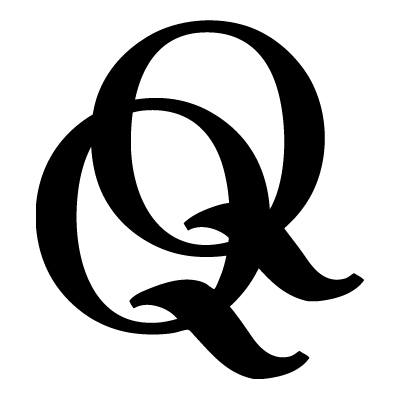
In-store signage by Seth (photo: Kim Moir)
Windsor is less than a four-hour drive from Toronto, but Biblioasis likes to play up its status as an outsider. A cheeky ad campaign from 2013 – led by head of marketing and publicity Tara Murphy – celebrates the fact that the press exists away from the mainstream of Canadian publishing with the slogan “Imported from South Detroit,” which appears on T-shirts, stickers, and promotional materials. The tagline at once cashes in on the cachet of the Motor City while acknowledging a geographic quirk of the Detroit-Windsor border crossing, where Canadians actually head north across the Ambassador Bridge to pass into the U.S.
In fact, Biblioasis has always looked to the U.S., both for inspiration and as a vibrant market. “The origins of Biblioasis are not nationalist in the way that a lot of small presses from the 1960s, ’70s, and ’80s were,” says Wells. “We just automatically assumed that if we were going to be publishing, we should be trying to get into the U.S. We didn’t realize that many smaller presses very often stay within their own boundaries.”
In 2011, Biblioasis moved its U.S. sales and distribution to Consortium. (At the same time Publishers Group Canada/Raincoast took over Canadian sales and distribution from the Literary Press Group.) Wells says about 40 per cent of sales now come from south of the border, though that figure fluctuates from year to year.
Biblioasis is also behind what is arguably the most ambitious international translation program in Canada. Launched in 2007, the series includes literature from Europe, Latin America, Africa, and “the minority languages of Canada.” One of its authors – the Portuguese-speaking, Mozambique-born Mia Couto, whose novel The Tuner of Silences appeared with Biblioasis in 2012 – won the most recent Neustadt Prize (dubbed “the American Nobel”).
The translation program is set to expand to at least four titles per year and incorporate more work from Quebec writers.
“Right from the very beginning, we said we’d try to have a translation series that got away from the idea that, here in Canada, we only have to read translations that people in New York or London have decided we should read,” says series editor Stephen Henighan.
Biblioasis’s bold internationalism has allowed it to forge relationships with booksellers across North America and opened doors for Canadian authors looking to crack the U.S. market. A good example is Salt Spring Island–based author Kathy Page, who has signed three story collections with the press (the first of which, Paradise & Elsewhere, appeared this spring).
Page’s reissued novel Alphabet, nominated for a 2005 Governor General’s Literary Award, will also be presented in the U.S. (where it has not yet appeared) as a new release. Wells believes the novel – which is set in a prison and features a transgendered character – has “breakthrough potential,” in part due to the cultural influence of the Netflix series Orange Is the New Black.
For her part, Page views the fact that Alphabet is even on the radar of U.S. booksellers as a sign of Wells’s creativity and resolve.
“A great thing about Biblioasis is that they’re Canadian, but they’re very much connected to the wider world,” says Page, who plans to tour the novel at literary festivals in Brooklyn and Austin, Texas. “I don’t just write about British Columbia, so I feel very at home in that more international library.”

 Contact us via email
Contact us via email
